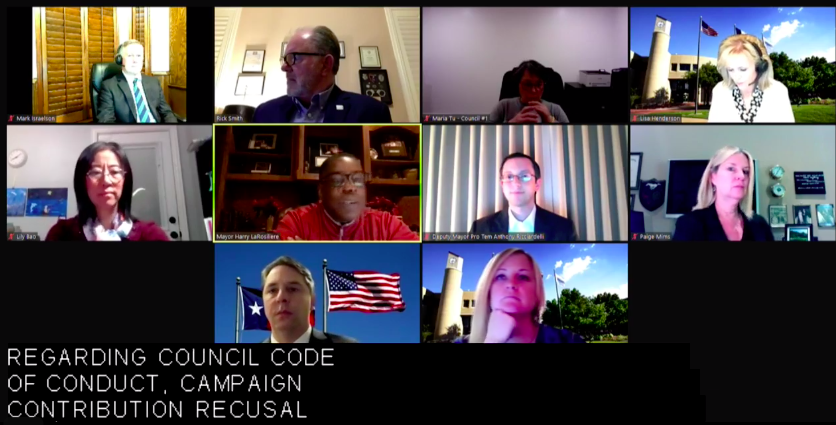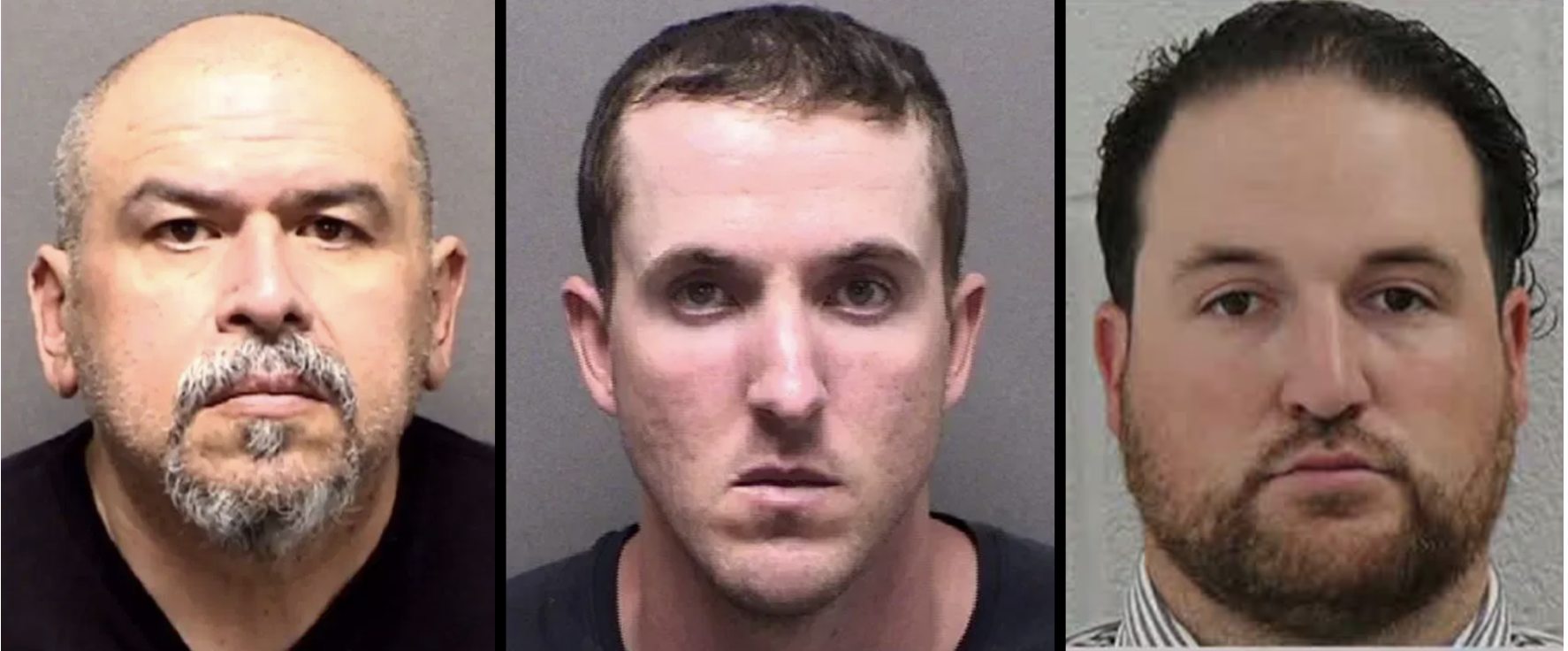Plano is putting a check on the influence of money in local politics with a unique ethics rule designed to limit the ability of campaign contributions to impact city council members’ votes.
On Tuesday, Plano City Council passed an ordinance requiring council members to recuse themselves from votes that could benefit donors who contributed more than $1,000 to their political campaigns. The automatic recusal is designed to eliminate conflicts of interest and avoid the appearance of pay-to-play politics in the city.
“Nobody really has an ordinance like this,” City Attorney Paige Mims told council.
Councilmember Lily Bao, who sponsored the ordinance along with Councilmember Rick Smith, said the addition to the Council Code of Conduct didn’t arise from complaints about any current member, but from a desire to set a higher standard for themselves and future councils.
Bao said human nature warrants that citizens shouldn’t rely on the righteousness of any council member, but good systems should be installed that will hold elected officials accountable.
Following an hour of debate, council passed the ordinance by a 4-3 vote.
The ordinance took effect immediately and applies to both cash and in-kind contributions from individuals or political action committees. “Donors” who benefit from council votes include any business entities in which campaign contributors have a “substantial interest.” Responsibility for identifying substantial business interests impacted by the ordinance falls to the campaign contributor, not the council member.
Councilmembers Bao, Smith, Anthony Ricciardelli, and Shelby Williams voted for the new rule designed to increase transparency and accountability in city government. Mayor Harry LaRosiliere and Councilmembers Kayci Prince and Maria Tu voted no. Councilmember Rick Grady was absent.
The mayor objected to changing the rules tied to campaign money ahead of the May 2021 city elections.
Prince agreed with the mayor’s objection and also argued the ordinance was well-intended but unnecessary.
“I’m all for helping us avoid any appearance of impropriety,” Prince said. “I struggle with this whole idea that I cannot take a campaign donation and then not do the right thing.”
“We should not do this in a campaign season,” she added.
Tu noted the ordinance lacked any enforcement or penalty provisions and raised questions about contributions from special interest groups like firefighters and realtors.
“We’re trying to pass an ordinance with no teeth and implement a law that we cannot really enforce,” she said.
“We’re dealing with $1,000,” Tu added. “That’s not a lot of money.”
Williams proposed adding a penalty to the ordinance but withdrew the suggestion to facilitate passage of the reform.
“This does not prevent any person from donating to any candidate,” Bao said. “It actually protects all candidates and council members receiving donations because donors will donate with a clear understanding of the rules.”
Campaign contribution amounts have skyrocketed in recent city elections.
LaRosiliere raised more than $300,000 for his 2017 re-election campaign; more than $175,000 came from individuals and PACs with ties to developers or their financiers, apartment projects, and other special interests from outside Plano.
Hundreds of thousands of dollars poured into the contentious 2019 city elections as well. Much of the cash was funneled through the We Love Plano PAC—bankrolled primarily by LaRosiliere and real estate developers and spent on the mayor’s slate of candidates: Grady, Tu, then-Councilmember Ron Kelley, and Democrat Ann Bacchus.
Earlier this year, council discussed possible campaign finance reforms similar to what other cities have in place, but they deferred action. Automatic recusal is related to campaign finance but presents a unique solution to the ethics issue.
“Let’s at least show that this is an important issue to us,” Smith said, countering Prince’s assertion that the ordinance is “not going make a meaningful difference.”
Plano resident Debbie Bonenberger applauded council’s action.
“The ordinance demonstrates Plano truly is a ‘City of Excellence,’ not just for the services and amenities the city offers, but also for the ethical and responsible leadership it plans to provide going forward,” Bonenberger told Texas Scorecard. “This is a huge indication that most of the current council members are looking out for the taxpaying residents and not just the outside developers.”
Ricciardelli said he doesn’t believe council members are engaged in actual impropriety, but added, “We bolster public confidence when we take steps that also take away the appearance of any possible impropriety.”
“I agree 100 percent with not changing the rules in the middle of the game,” Ricciardelli added. “I think until the filing period opens … the game hasn’t started yet.”
The filing period for the May 2021 city elections begins on January 13.





